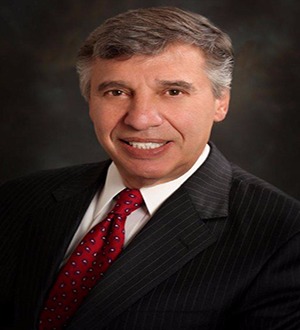What types of accommodations are individuals able to request so that that they can perform their job despite a medical condition? The answer is not as straightforward as you might expect. The Americans with Disabilities Act of 1990, or the ADA, is one of the most complex employment laws.
The Americans with Disabilities Act (ADA)
It was not until 1990 that Congress finally passed a federal law that provided equal rights and job protections to individuals with a disability. The Americans with Disabilities Act, or ADA, was enacted for the purpose of providing civil rights protections for persons with disabilities that are equal to those available to minorities and women. Discrimination based on medical conditions or perceived conditions is a major issue in today’s workforce.
Can my employer deny my request for an accommodation under the ADA and Ohio law?
The Americans with Disabilities Act (“ADA”) requires employers to provide reasonable accommodations to disabled employees and applicants for employment, unless doing so would cause an undue burden to the employer. In order to be disabled, you must have a physical or mental impairment that prevents you from performing one or more major life functions (For example, insomnia prevents you from sleeping). Typically, an accommodation involves modifying or altering the work environment, or changing the manner in which an employee performs his or her job, that enables the employee to perform the essential functions of his or her position.
What is a reasonable accommodation under the ADA and Ohio law?
What is “reasonable” under the ADA depends on the circumstances and must be evaluated on a case-by-case basis. An accommodation is not reasonable if it eliminates one or more essential functions of the employee’s job. In other words, an employer is not required to honor an employee’s request for an accommodation if that accommodation would relieve the employee of having to perform a fundamental duty of that employee’s position. For example, if your job is to move 30-pound boxes from point A to point B, it would not be reasonable to have an accommodation the prohibits lifting more than 15 pounds. On the other hand, if your job is to repair equipment, and only in rare situations do you have to lift anything weighing more than 15 pounds, then it would be a reasonable accommodation under the ADA and Ohio law.
Examples of accommodations that can be reasonable under some circumstances include:
- Permitting an employee to change his or her schedule from 5, 8-hour shifts per week to 4, 10-hour shifts so that the employee may receive medical treatment one day per week
- Providing an employee with a reasonable amount of unpaid medical leave
- Permitting an employee to have a flexible start or end time in order to attend medical appointments
- Modifying an employee’s workspace with a stand-up desk, computer screen magnifier, etc.
- Providing an interpreter
- Reassigning an employee to a different vacant position
Employers’ duties
Where an employee requests an accommodation, the employer has a duty to engage in an interactive process with the employee to explore options for a reasonable accommodation that will allow the employee to continue to perform his or her job without eliminating the essential functions of the job, and that will not cause the employer undue burden. To show that an accommodation would cause an undue burden, an employer can demonstrate that the request was too expensive, disruptive, or extensive. However, cost concern, alone, is typically not sufficient to establish that an accommodation would cause undue burden to the employer.
These protections extend only to employees or applicants for employment with a disability. Under the ADA, an employer is not required to make an accommodation for a non-disabled employee to care for his or her disabled spouse, for example. (Note: The Family Medical Leave Act may require that the employer extend job protection to the employee under these circumstances, however). Each situation is different, and a thorough review of the facts may be required to determine if your employer has violated the law.
In general, the ADA prohibits private employers, state and local governments, employment agencies, and labor unions from discriminating against individuals with disabilities in applying for jobs, hiring, firing, advancement, compensation, and other terms and conditions of employment. The ADA covers employers with 15 or more employees, including state and local governments. Ohio has a similar law, Ohio Revised Code 4112.02, which prevents the same discriminatory practices as the ADA and applies to Employers with four (4) or more full-time employees.
If you believe you may have a failure to accommodate claim under the ADA, your employer is refusing to provide assistance related to your medical condition, you are being treated differently because of your disability, or if you have other questions or concerns about your employment, please reach out to one of our Columbus ADA Accommodation Lawyers for a free consultation.




























